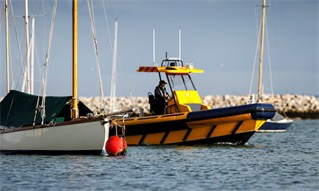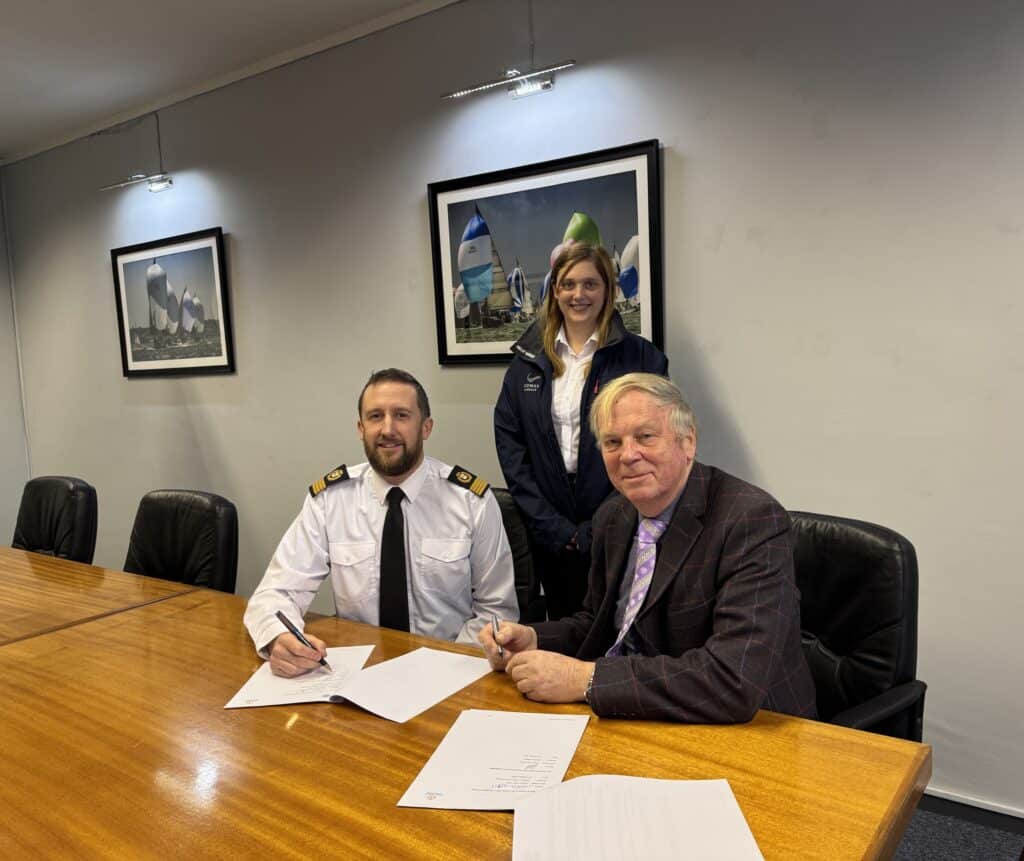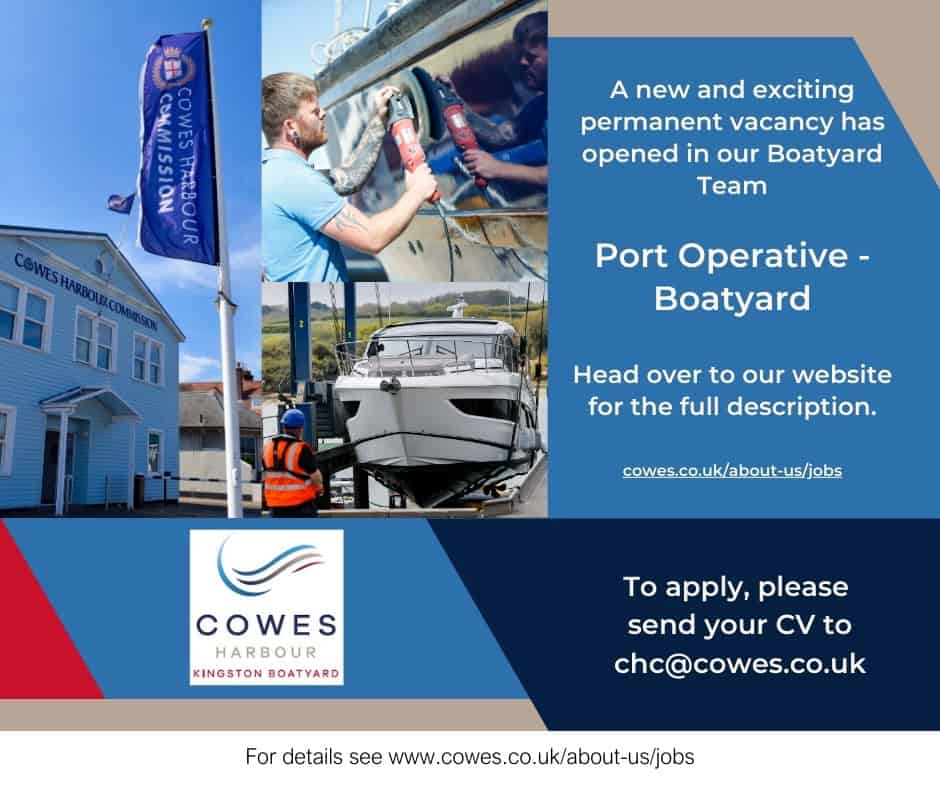
Cowes Harbour Commission (CHC) is keen to promote awareness of the marine environment and opportunities for young people in the marine industry, whether that is, for example, participating in the Royal Yacht Squadron Foundation’s Maritime Careers Fairs, giving a presentation to University of Portsmouth Post Graduates studying Coastal and Marine Resource Management, or accompanying Cowes Enterprise College students during a maritime geography trip.
As reported in September, CHC once again exhibited at the Royal Yacht Squadron Isle of Wight Foundation’s Marine Careers Fair, which included presentations, workshops and exhibitors from a wide range of marine careers providers, trainers and businesses.
In October, the University of Portsmouth’s School of the Environment, Geography and Geosciences sent a group of students to the Isle of Wight for a couple of days for a series of talks and site visits that encapsulated the ways coastal, marine and environmental issues are managed on the Island. The Post Graduates were studying for an MSc in Coastal and Marine Resource Management and were here to view the core elements of their course in one location. During their stay, the students learned from a variety speakers, including Cowes Harbour Commission, Yarmouth Harbour Commissioners, Bembridge Harbour Trust, the Isle of Wight Council, Hampshire and Isle of Wight Wildlife Trust, and The National Trust, on topics including estuary management, coastal engineering and defences, harbour and marina commercial enterprises, and coastal hazards and their management.
Also in October, Cowes Harbour Commission joined Year 7 students from Cowes Enterprise College to look at the Cowes Breakwater and different coastal features between East Cowes and Gurnard as part of their first Geography Field Trip for the school’s new Maritime Futures Curriculum.

Cowes Breakwater
Cowes Enterprise College launched their Maritime Futures Curriculum in September 2019. The curriculum aims to embrace Cowes’ rich local heritage and place demanding academic concepts and techniques into ‘real life’ settings using their close ties with the maritime industry. The project is part funded through a grant from the Edge Foundation, and aims to help meet skills gaps in the industry. It is also supported by a specialist maritime panel made up of people working locally in various maritime-related roles.
Through a thematic approach, the current National Curriculum is underpinned by linking concepts to real-life maritime examples where the children are able to apply their new learning in different ways. Across the year, students will be exploring boat-building, including design and specifications; tides; shipping forecasts; and attending a Cowes regatta to celebrate the production of boats. The Maritime Skills Alliance and CECAMM, part of the Isle of Wight College, are among the partners supporting on curriculum development.
The curriculum launched with a Geography project-based-learning scheme of work in Year 7 where the whole year group applied their core learning of coastal erosion to the northern coastline of the Isle of Wight with the ultimate aim of answering the question: Is Coastal Management in Cowes effective? During the first few weeks of the half term, all 270 Year 7 students went on a boat trip on the Solent to observe and make strategic notes on the different coastal features combating erosion. They were guided on board by the expert knowledge of the Cowes Harbour Master Capt. Stuart McIntosh and Nigel Harley from Harley RaceBoats, the school’s maritime consultant.
Each director of learning within the school has taken a fresh look at their own area of the curriculum and developed ways in which specific units can be linked thematically or conceptually to the maritime industry. In Design and Technology, for example, the children have already used their textiles skills to produce windsocks and are currently in the process of learning how ships cater for multicultural crews when it comes to food technology. These are just a few of the ways in which subjects have embraced the maritime theme and are innovatively planning lessons to ensure, not only rigorous academic success but also an understanding of our fantastic local industry.
As the new curriculum continues to develop over the course the year, it is the intention to build on the successes in Year 7 and support learning in the same way in all other year groups. This is an exciting development for Cowes Enterprise College and something that is well-worth being part of.
Cowes Enterprise College would welcome any further support from industry professionals who would like to support their Maritime Curriculum, both in and out of school; enquiries can be sent to Mr. Tom Harding, KS3 Development Leader.




